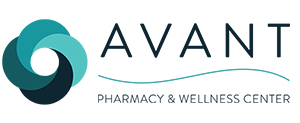Brain health supplements can be overwhelming, but how do you find which one actually works when there are so many different options available promising a great range of benefits like increased memory storage capacity and better focus? This question is especially for people with cognitive problems such as memory loss or lack of concentration.
This article will take you step by step over what needs to be done for an individual to select the most appropriate brain health supplement that will support their cognitive functioning safely and efficiently based on their particular needs.
The Importance of Choosing the Right Brain Health Supplements
When it comes to improving cognitive function, people usually want to achieve lasting results. Brain health supplements are not only for short-term benefits but also for long-term investment in mental well-being. Memory, attention span, and overall brain health can be enhanced greatly by suitable brain health supplements which may further reduce the chances of getting neurodegenerative diseases.
However, not all supplements are created equal and so is not each of them appropriate for your body type. Consequently, it is important to consult specialists and find products that are rich in nutrients as well as scientifically supported thereby ensuring safety and effectiveness in meeting the intricate needs of your brain health.
Various Types of Supplements for Brain Health
Nootropics (Brain Boosters)
Ingredients: Caffeine and other stimulants are commonly found in these products.
Benefits: Beneficial effects include a temporary increase in both energy and concentration.
Nootropics, often known as brain boosters, are intended to improve cognitive function, notably in terms of energy and focus. Additionally, they typically include components such as caffeine, which has been associated with stimulating the central nervous system. Although brain boosters might deliver a quick mental boost, the benefits of these are typically fleeting and may be followed by a crash.
Memory Supplements
Ingredients: A single or a few ingredients, such as ginkgo biloba, are typically used in the formulation of these products.
Benefits: Promises to improve one’s memory.
Ginkgo biloba and ginseng are two examples of ingredients that are commonly used in memory supplements. These ingredients are claimed to promote memory retention and recall. Even though these plants have been utilized in traditional medicine for millennia, the results of contemporary scientific research in this area are contradictory. Some studies conclude that there is a slight improvement in cognitive ability, while others discover that there is little to no effect at all. Before starting to make use of these supplements, it is essential to approach them with a critical mindset and inquire about them from either the scientific literature or healthcare experts.
Common Multivitamins
Ingredients: A mix of vitamins that can support general health.
Benefits: Broad nutritional support.
Multi-vitamins serve the purpose of compensating for nutritional deficiencies in typical diets. Although they may help with overall health such as boosting the immune system and raising energy levels, multivitamins do not target specifically the mind. Often these types of supplements lack specific ingredients that have been proven to enhance mental function to a large extent.
Cognitive Support Supplements
Ingredients: Vitamins and micronutrients like those found in Mediterranean and MIND diets.
Benefits: Support brain health and function in both the short and long term.
Cognitive support supplements typically contain numerous vitamins, minerals, and other nutrients recognized to promote brain health. Examples include B Vitamins, Omega-3 fatty acids, and antioxidants. These products are formulated to provide holistic support for memory, focus, and general cognitive well-being. Additionally, they are often backed by scientific research and influenced by eating patterns such as the Mediterranean diet as well as the MIND diet which are known for their ability to protect against neurodegeneration.
Key Factors to Consider
Science-Backed Formulation
Selecting a brain health supplement requires scientific evidence. Omega-3 fatty acids, for example, have been subjected to extensive clinical research which proves that they can lower inflammation and support cognitive health. In the same way, phosphatidylserine is necessary for the maintenance of healthy nerve cell membranes while CDP-choline is recognized for its ability to enhance memory and cognitive function. It is more probable for supplements containing these components to be effective.
A Thorough Nutrient Profile
A well-balanced nutritional profile is required to support many different aspects of brain health. Vitamin B6, B12, and folic acid are essential for the brain because they help with the synthesis of neurotransmitters and also regulate homocysteine levels which can lead to a decrease in risks of neurodegenerative diseases. Antioxidants like vitamin E protect brain cells from oxidative stress while minerals like magnesium contribute largely towards neurotransmission and cognitive function.
Trusted Manufacturing and Quality Control
For brain health supplements to be effective and safe quality control measures should be taken seriously. Good manufacturing practices (GMP) need to be followed by trustworthy companies so that their products meet high standards of quality. There are also third-party certifications that can give more guarantee about how pure a product is. Avoid supplements with artificial additives, fillers, or allergens, as these can undermine health benefits and pose risks to sensitive individuals.
User Reviews and Expert Recommendations
Comments of existing users may provide some insights into how well the supplement works in the real world, what benefits it brings, and side effects if any. Besides, expert suggestions from healthcare providers, nutritionists, and physicians are valuable as they advise on top-quality products that have been studied in the labs and are science-backed. These practitioners attend to your specific health needs depending on your health goals and current condition.
Value for Money
Balance between cost and quality. High-quality supplements could be more expensive but will most likely produce better results and long-term health value. Consider whether the price is aligned with the benefits. Evaluate the ingredient list of this brain health supplement along with its manufacturing practices as well as user feedback to ascertain any good worth for the money spent on it.
Additional Tips for Choosing the Best Brain Supplement
- Consider Your Specific Needs: Whether you need support for memory, focus, or overall cognitive health, choose a supplement tailored to your specific goals.
- Monitor Your Health: Before starting any supplement, consult with a healthcare provider to ensure it’s suitable for your health condition and doesn’t interact with other medications.
- Stay Consistent: Brain health supplements are most effective when taken regularly as part of a healthy lifestyle that includes a balanced diet, regular exercise, and adequate sleep.
You need to select supplements that meet your specific cognitive needs. If you want to improve your memory, for example, look for memory enhancement supplements. For general brain health, choose supplements that aid in other cognitive functions besides memory. It is important to be consistent by adding it to your daily routine together with healthy food, exercise, and enough sleep because this will help you achieve the best results.
Conclusion
Choosing the right supplement for brain health can significantly improve cognitive abilities and overall wellness. In order to ensure a lifelong support system for your brain, it is suggested to look for supplements that are based on scientific research, have all-inclusive nutritional facts, and come from reputable manufacturers. Always remember that the best brain health supplements are one that suits individual needs and complements a healthy lifestyle.


